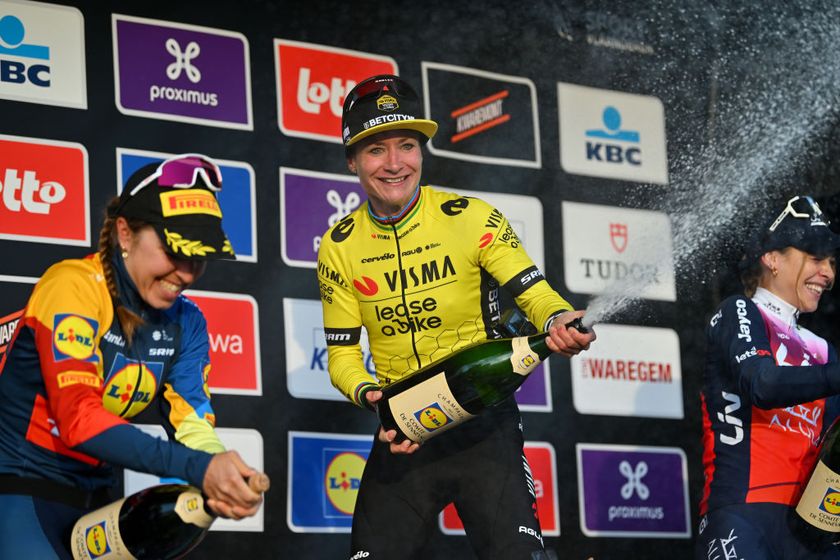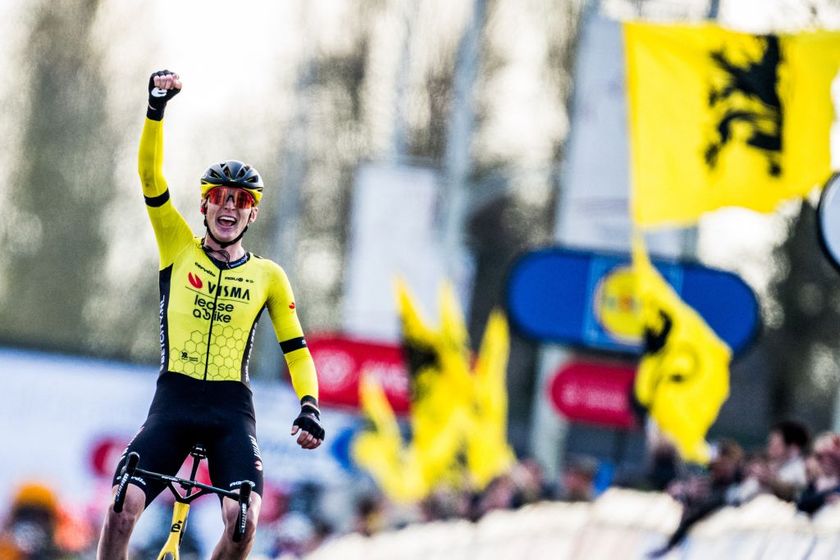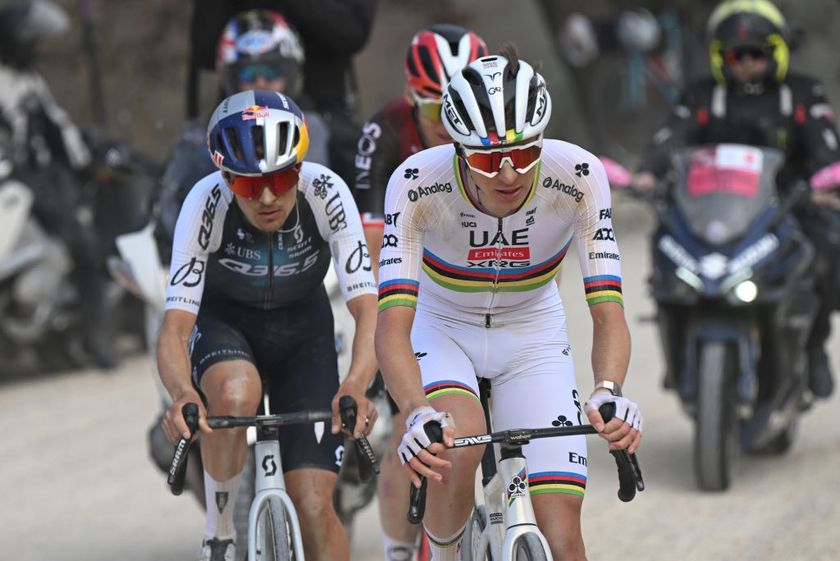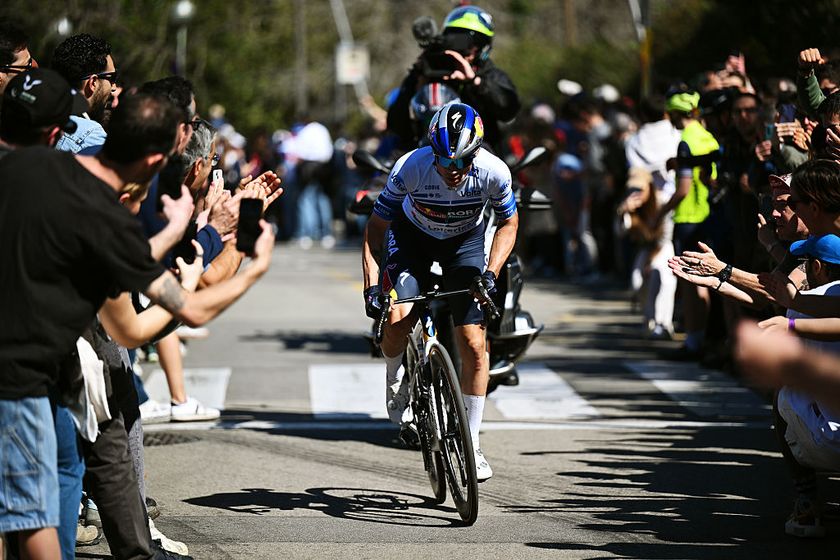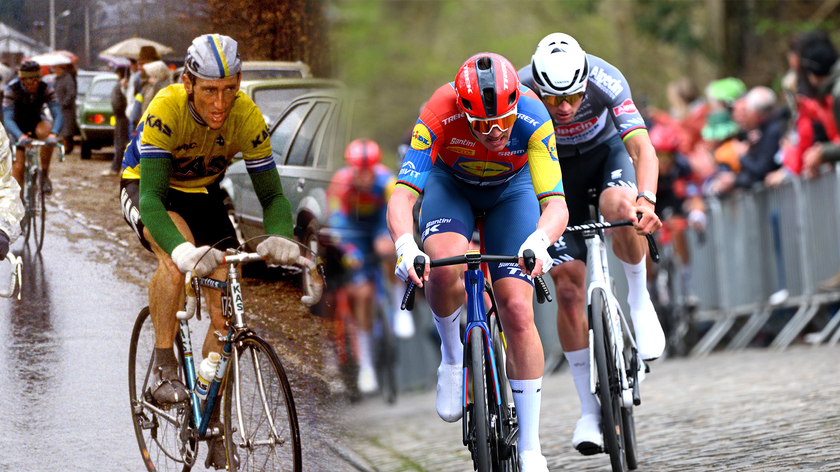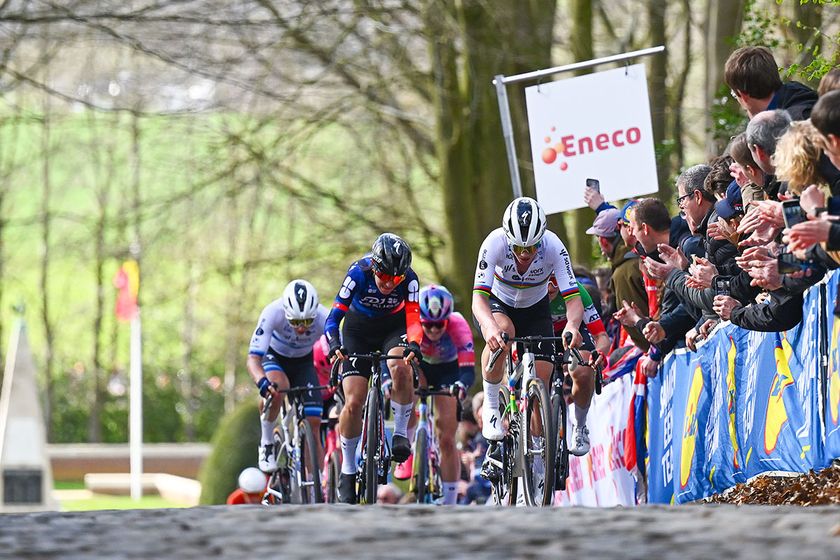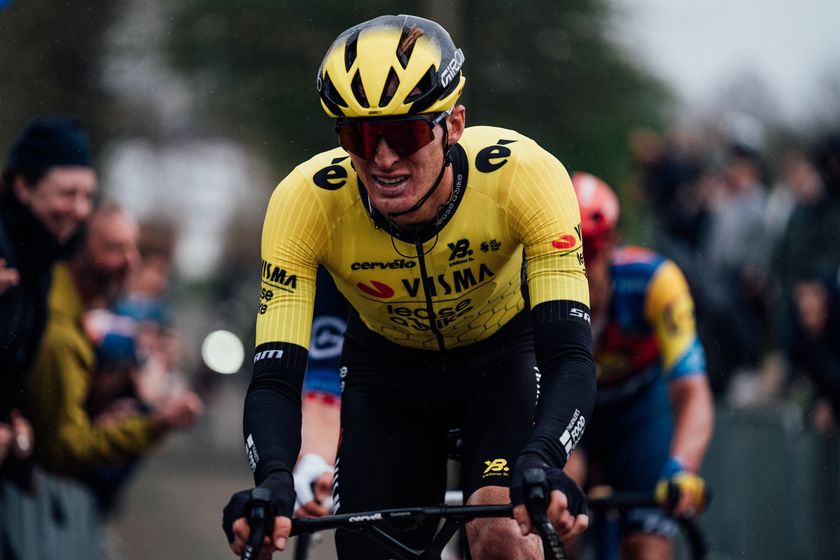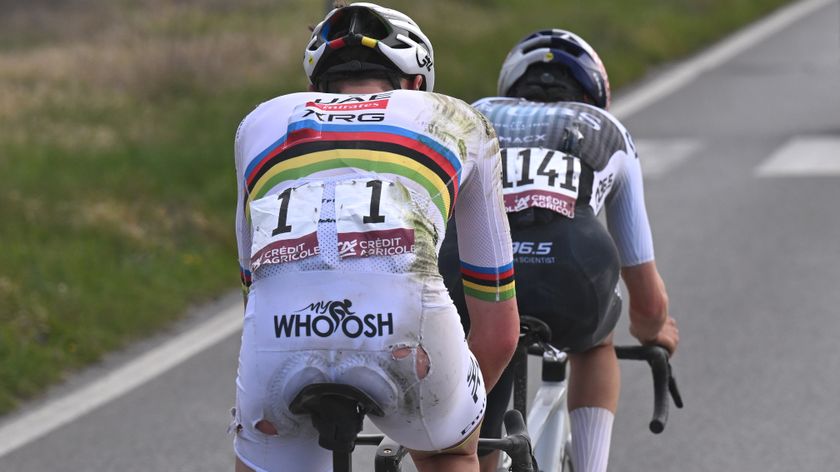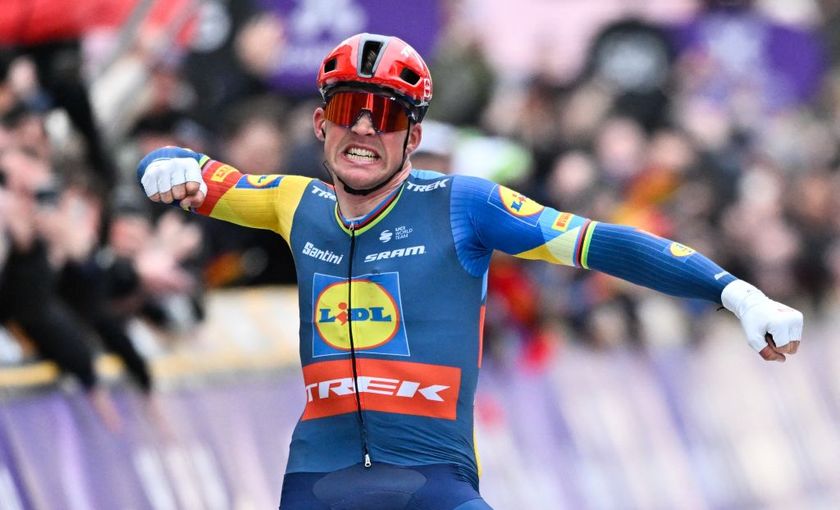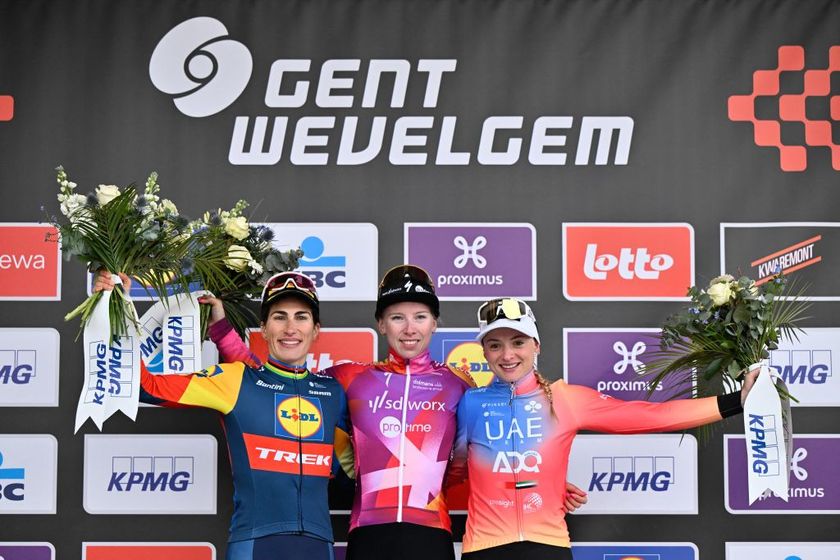The legacy of the crash
Part 1 of this interview: Raisin racing to recover , is here. Saul Raisin's crash in April seemed...





Saul Raisin interview, August 10, 2006, Part 2
Part 1 of this interview: Raisin racing to recover, is here.
Saul Raisin's crash in April seemed quite innocuous at first but turned out to be far more serious than first thought. A cerebral oedema that resulted from the crash meant that not only was Raisin's pro career in the balance, but his life as well. In the second part of this interview, Shane Stokes follows Raisin's painful road to recovery.
Dr Bilsky noted then that Raisin had an ongoing weakness on his left side and that while he had fractured his collarbone and shoulder blade on that side, it was almost certain that some of this lack of power was due to the brain injury. The therapy he was doing at the time was an attempt to help his body compensate for this, with the exercises building strength and also trying to get his body to use different nerve pathways when others are compromised.
"There are some strength issues and balance issues but he has done remarkably well," stated Dr Bilsky back then. "His injury was in early April, we are two and a half months on and he is, like I said, doing most things independently. He has got some things to work on, there is no question of that, but he is doing very well."
When asked if it was possible for Raisin to emulate LeMond and Armstrong and return to the pro ranks, Bilsky was however being cautious about his chances. "Neither of those guys had a brain injury," he answered. "Both stories are remarkable, but I think Saul has a harder road ahead as he actually has some neurological structural damage…. We need to see if he will actually have the balance to be able to ride, as well as the muscle activity to be able to go at a rapid rate and be able to process all that goes on during the race. That is going to take some time to see."
"Saul is convinced that he is going to be able to return. I would not tell he can't do that. He is an elite athlete who is different from the average person and his drive and his motivation is such that I wouldn't put it past him, but it is not a slam dunk that he is going to be able to achieve that. Time will tell how things go."
Get The Leadout Newsletter
The latest race content, interviews, features, reviews and expert buying guides, direct to your inbox!
However, since then things have progressed considerably and his odds have further improved. Raisin finished rehab and has spent ever-increasing amounts of time on the indoor trainer, as well as doing some swimming. Cyclingnews has been in regular phone contact with Raisin since his accident and the mental improvement has been easy to detect, with his speed of talking plus clarity of voice and thought becoming better as the weeks and months passed.
In early July he talked about these changes. "I used to feel like I was in a fog all the time, like I was in slow motion," he said. "But now you can even tell the difference from my voice - I am much crisper, my reaction times are much faster and I am so much better than I used to be.
"My doctors are very happy with my progress. They say I am a miracle, I shouldn't be doing half the things that I am doing. They thought I would never walk again, or do anything like that."
His strength and balance are also improving all the time. "Things are progressing well," he said in July. "My left side was weaker because of my brain injury, but as my brain heals it will keep getting better. My left side is almost back to where it should be; my left arm is still weaker, I am doing a lot of exercises trying to build it back up. But other than that, my legs are almost back to normal. There has definitely been an improvement."
Given that Dr Bilsky's big concern about Raisin returning to road training was his balance, this was also an important factor in his recovery. The news is good there too. "My balance has come on well," he stated. "When I was in rehab they had a machine that would measure your balance. The average is 70 for somebody who hasn't had a brain injury; the first time I did that test I was only 25. But by the time I left my balance was 70."
Good news at last
He's remained very cautious, though, knowing that another blow to the head could be disastrous. There is a set time period which he must respect in order to avoid trouble. "I've been told that I have to play things safe for a year because of the brain injury. I can't afford to have another hit to the head in the year after my accident. It is nothing to do with my physical state, it is down to the fact that I can't have another blow to my head."
However there is good news here too. Last month Raisin was told by neurosurgeon Dr Pare that he had no objections to his planned return to the peloton. "He is French-Canadian so he was the first person to read my French transcripts," he explained. "He has given me some very positive information regarding my returning to racing. He said that after my brain heals, if I was ever to have another hit to my head it would be as if it was my first. In other words, I am no more likely than anyone else to get hurt if I crash. As a result, he thinks I should be able to get back to racing. It will at least be a year, though."
Another step forward came in recent days when Raisin switched over from the home trainer to the rollers, proving that his balance is vastly improved. The next stage came on Wednesday when he completed a 90 minute training ride with his father, marking the first outing on the road since his terrible fall on April fourth. The significance was clear to Raisin, who described it as, "the best day I have ever had on my bike."
Setting goals with team support
Now the goal will be to consolidate and build, gaining strength and skill as he continues to build towards a possible return to the pro peloton. Of course, it remains to be seen if the loss of power he experienced after his accident will be fully overcome, but everything is pointing in the right direction vis-à-vis his planned return. Now it is all about time, patience and continuing to build on what he has already achieved.
If and when he gets to the point where he can return to the peloton, Raisin is likely to compete once more in the colours of Credit Agricole. The French squad has been very supportive of him and manager Roger Legeay has visited him during his recovery.
"The team likes me a lot," he said to Cyclingnews. "They have been very encouraging. As of now, I am going back to Europe in October to be in the team pictures for next season. So far things are good, so we will see."
Legeay is also optimistic. "For sure his place is in the Credit Agricole team," he told Cyclingnews this week. "I am very pleased his health is good. I have very strong hopes that he can race again, and I think he will do so. His first big victory will be when he is once again on a start line. After that, I hope he can ride again at his level.
"Prior to his accident, Saul progressed each year, improving step by step. He has a good talent and it is necessary to plan his career. He has made good progression since his time in the Credit Agricole Espoirs and the plan this year was that he would take part in the Giro d'Italia. He is a climber and it is necessary to learn in the big races, riding with the strong riders. That was the plan [before his accident], and we hope he will get back to that level."
Raisin has had a lot of encouragement, not least what he saw during cycling's biggest event in July, "I will tell you something…I was really emotional when I was watching the Tour and I saw Thor [Hushovd], Axel Merckx and all my team-mates wearing my bracelets," he stated. "That was very emotional for me. It was like my spirit was at the Tour. I would really like to have been there, but it really made me feel good to see those guys wearing them. Especially to see Thor win those stages."
And so, finally, back to LeMond and Armstrong. Raisin grew up inspired by those riders. Does their own successful battle against adversity spur him on?
"Very much so," he replies. "It shows me and other people that you can come back from disasters or things like that. That setbacks are not going to hold you back forever. That's my big goal, to return to the peloton and show people that if you have a brain injury, you can fight it. You can come back, you can return even stronger than before. That is what I plan to do."
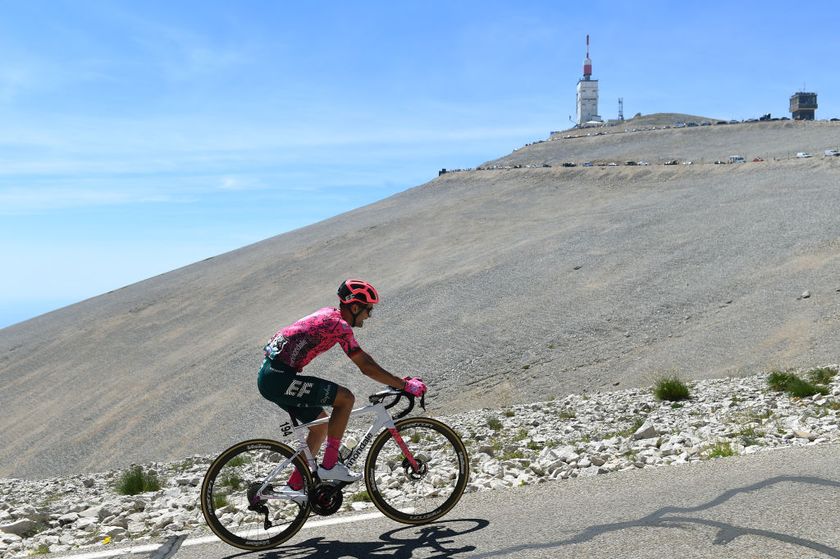
Budget shortfall to blame for second cancellation of CIC-Mont Ventoux in June
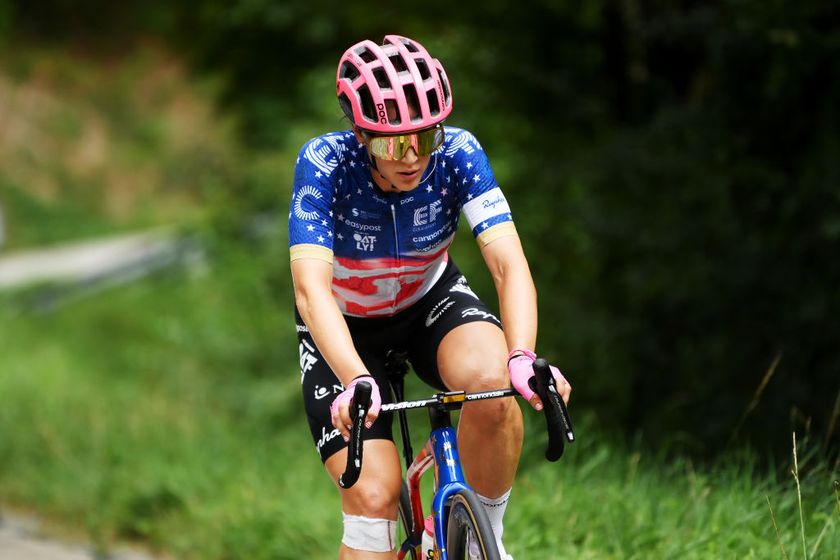
First-time altitude camp for Kristen Faulkner sets up 'real fitness' for Ardennes Classics and Grand Tours
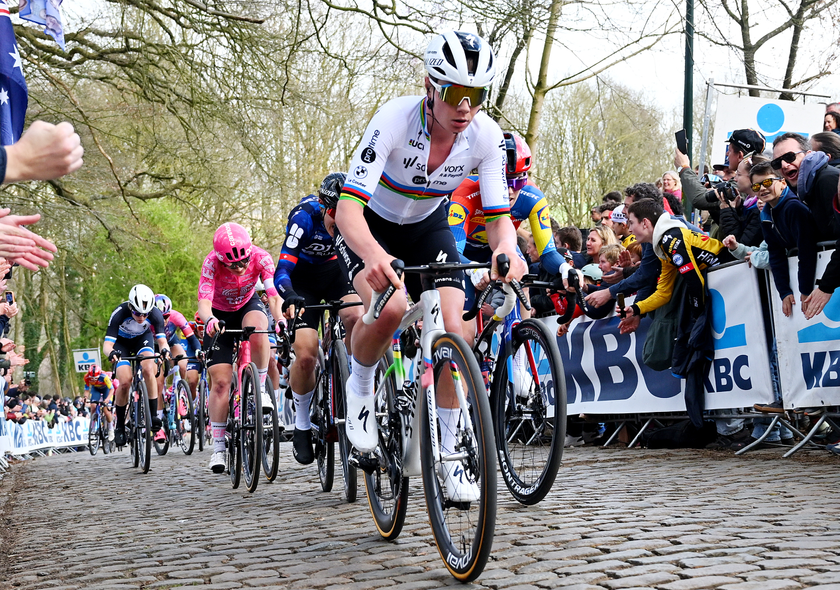
'Close to the real shape' - No wins yet in 2025 but Lotte Kopecky approaches peak in bid to reclaim Tour of Flanders crown
